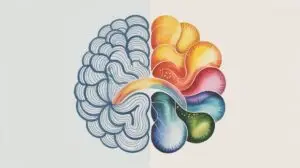Living with bipolar disorder can be a challenging and isolating experience. However, individuals with bipolar disorder can find solace and support through group therapy, a powerful treatment approach that offers unique benefits. In this blog post, we will delve into the various advantages of group therapy for individuals with bipolar disorder, drawing examples from dialectical behaviour therapy (DBT), a widely used therapeutic modality.
Shared experiences and validation: You are not alone
One of the most significant benefits of group therapy is connecting with others who share similar experiences. In a group setting, individuals with bipolar disorder can openly discuss their challenges, triumphs, and struggles. Through shared experiences, participants can validate one another’s emotions, providing a sense of relief and understanding. For instance, in a DBT group, individuals may share stories of managing intense emotional highs and lows, allowing others to relate and feel less alone in their journey.
Peer support and encouragement: A network of understanding
Group therapy provides a platform for individuals to offer support and encouragement to one another. Peers can share coping strategies, successes, setbacks, and personal insights gained from their own experiences with bipolar disorder. This peer support fosters a sense of hope and motivation within the group, reminding individuals that recovery is possible. For example, in a DBT group, participants may celebrate each other’s accomplishments in effectively utilizing distress tolerance skills to manage intense emotions.
Learning from others: Expanding knowledge and skills
In group therapy, individuals have the opportunity to learn from the experiences of others. Through open discussions facilitated by a therapist, participants can gain insights into different perspectives, coping mechanisms, and strategies for managing bipolar symptoms. This knowledge exchange enriches their understanding of the condition and equips them with practical tools. In DBT groups, individuals might learn interpersonal effectiveness skills by observing role-plays or hearing others’ stories of navigating challenging relationships.
Enhancing self-awareness: Exploring triggers and patterns
Active participation in group therapy encourages self-reflection, which is vital for managing bipolar symptoms effectively. By sharing thoughts, emotions, and experiences within a supportive environment, individuals gain a deeper understanding of their triggers, patterns, and reactions. This heightened self-awareness empowers them to make informed decisions about their treatment plan. For instance, in DBT groups, participants might engage in diary card exercises to track their emotional states and identify patterns associated with mood swings.
Developing coping skills: Practical tools for daily life
Group therapy provides a structured environment where individuals can develop and practice coping skills. Therapists guide discussions on stress management, emotion regulation, communication skills, and problem-solving techniques. Participants learn practical strategies to navigate the challenges associated with bipolar disorder. In DBT groups, individuals may practice distress tolerance skills like self-soothing techniques or create personalized crisis intervention plans to manage intense emotions effectively.
Building social skills: Connecting with others
Bipolar disorder can sometimes impact an individual’s social interactions. Group therapy offers a safe space for individuals to improve their social skills, such as active listening, empathy, and effective communication. By engaging in group discussions and receiving feedback from peers and therapists, participants enhance their ability to connect with others meaningfully. In DBT groups, individuals may practice interpersonal effectiveness skills by engaging in role-plays that simulate real-life scenarios.
Accountability and structure: Consistency breeds progress
Regular group therapy attendance establishes a routine essential for managing symptoms and maintaining stability. The accountability within the group setting encourages participants to actively engage in their treatment plan and take responsibility for their well-being. The structure provided by group therapy helps individuals stay focused on their goals and promotes continued progress. In DBT groups, participants may engage in weekly assignments that reinforce their learning skills.
Long-term support network: A community of understanding
Group therapy often creates lasting connections among participants beyond the therapy sessions. These connections form an ongoing support network that individuals can rely on during difficult times. A community of people who understand their struggles can be invaluable in maintaining overall mental health and preventing relapses. In DBT groups, participants may form bonds beyond the therapeutic setting through peer-led support groups or social activities.
In conclusion, group therapy offers a comprehensive approach to supporting individuals with bipolar disorder. Through shared experiences, peer support, learning from others, enhancing self-awareness, developing coping skills, building social skills, accountability, and long-term support networks, group therapy empowers individuals on their journey toward recovery. If you or someone you know is struggling with bipolar disorder, consider exploring the option of group therapy as part of a comprehensive treatment plan. Remember, you are not alone in this journey, and there is hope for a fulfilling life beyond the challenges of bipolar disorder. Take a look at this page to learn more about bipolar disorder and the treatment options in Saskatchewan.








